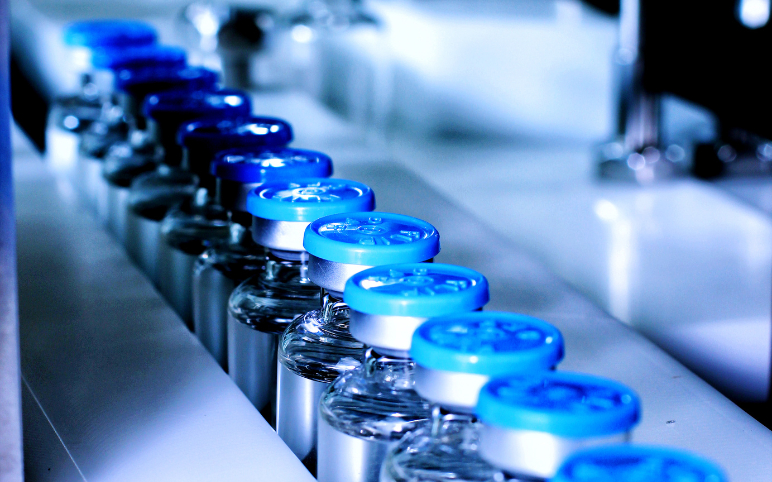Nirogy’s lead program aims lactate transporters for cancer treatment and is anticipated to enter human clinical trials in 2022. Unlike normal cells, cancer cells devour large amounts of glucose and eliminate a massive excess of lactic acid to the tumour microenvironment through lactate transporters for their quick growth and survival. Lactate-rich tumors develop a hostile environment for immune cells to survive, hence overcoming anti-tumour immunity. Nirogy’s lactate transport inhibitors have shown robust anti-tumour efficacy in preclinical models, either as monotherapy or combination therapy. Nirogy’s pipeline also incorporates a second transporter target in cancer and the third program in immunology.
Iterum Therapeutics presents new drug application to FDA for Oral Sulopenem
Iterum Therapeutics, a clinical-stage pharmaceutical company focused on developing next-generation oral and IV antibiotics for treating infections, which are caused by multi-drug resistant pathogens in both community and hospital settings, has declared that it has presented its New Drug Application (NDA) to the U.S. Food and Drug Administration (FDA) for sulopenem etzadroxil/probenecid (oral sulopenem) for the uncomplicated urinary tract infections (uUTIs) treatment in patients with a quinolone non-susceptible pathogen.
Corey Fishman, Chief Executive Officer, said that the submission of the NDA filing for oral sulopenem is a crucial step in bringing new antibiotics to patients to help address the challenge of antibiotic resistance. He also said that Oral sulopenem, if authorized, would mean that physicians and patients have the chance to take advantage from the proven efficacy and safety of penem antibiotics that, to date in the U.S., have only been obtainable in IV formulations. They are now one step closer to realizing the focus of bringing this much-needed medicine to over six million patients with cipro-resistant UTIs every year in the U.S.
The NDA submission comprises data from the SURE-1, SURE-2 and SURE-3 phase 3 clinical trials, in which oral sulopenem was well tolerated with no major drug-related adverse events. The SURE-1 clinical trial (uUTIs) showed the statistical superiority of oral sulopenem to the mostly used comparator, ciprofloxacin, for the primary efficacy endpoint of clinical and microbiologic outcome the test-of-cure visit for patients with a quinolone non-susceptible pathogen.
Gut Bacteria proffer insight into molecules protective against asthma and COVID-19
A team of researchers from Monash University’s Central Clinical School in Melbourne, Australia, set out to explain that question, and in the process discovered two molecules the scientists believe could proffer new treatment strategies for asthma.
One of the molecules, L-tyrosine, is sold over the counter as a dietary supplement. So, the researchers intend to fast-track it into clinical trials. If it works, they contemplate it might also be used for acute respiratory distress syndrome (ARDS) treatment in COVID-19 patients, reported in the journal Nature Immunology.
The researchers began by transplanting gut bacteria from an immune-deficient mouse model into normal mice and observing the animals’ immune systems. They were astonished to discover that the gut bacteria exhibited enhanced L-tyrosine metabolism, resulting in a byproduct known as p-cresol sulfate (PCS).
They gave either L-tyrosine or PCS to mice and discovered that the supplements protected the animals from lung inflammation. The lead author and Monash professor Benjamin Marsland, PhD, in a statement, said that PCS travels from the gut to the lungs, and acts on epithelial cells lining the airways to prohibit the allergic asthma response.
Further to testing L-tyrosine and PCS in mouse asthma models, the Australian team attempted them in animal models of ARDS, a common lung disorder in severe cases of COVID-19. They observed a protective effect there too.
TScan adds another USD 100 Million for new TCR cancer trials
TScan Therapeutics has raised another USD 100 million in a Series C to start 2021 on the positive notes it rang throughout 2020.
Boston area-based TScan aims to identify new targets for T-cell therapies in both blood cancers and solid tumors. It started with USD 48 million and later collaborated with its Big Pharma backer Novartis to research kidney cancer.
Then, late last year, it aimed COVID-19, turning its genome-based, high-throughput discovery platform for parsing T-cell receptors (TCRs) toward the coronavirus pandemic and how those immune cells reacted and inked a licensing agreement with Qiagen.
It has now raised a hefty USD 100 million series C, adding new investors including BlackRock, RA Capital Management, and two undisclosed healthcare-focused funds.
Proceeds from this financing will improve TScan’s TCR-T cell therapy pipeline for solid and liquid tumors into the clinic.



